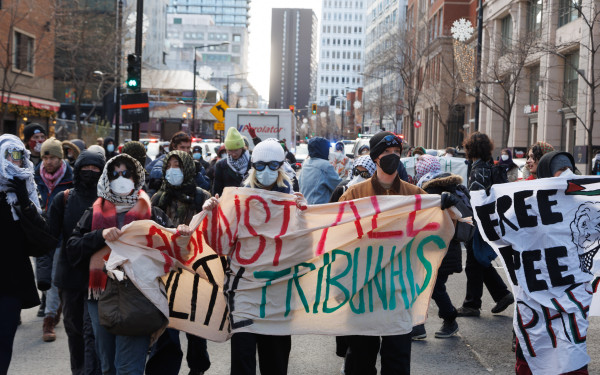Editorial: Hybrid work is here to stay
For over a year, the Concordia University Professional Employees Union (CUPEU) have been pushing for a better, hybrid work model.
On Sept. 4, the union officially began its strike, one day after it rejected a global offer from the university. The strike lasted seven days and was suspended on Sept. 12 after the university and union representatives reached an Agreement in Principle. The union will officially vote on whether to accept it on Sept. 18.
This strike, and CUPEU's demands, are about much more than just remote work—they represent the broader need for a university environment that is more fair and sustainable for all employees and students. CUPEU represents around 600 professional employees, including nurses, IT workers, academic advisors, financial analysts and guidance counsellors. These workers are the backbone of Concordia, ensuring that the institution functions smoothly and that students receive the support they need to succeed.
CUPEU’s strike proved to the university’s administration that, with a united front and direct action, people can create change. By pushing the union to go on strike and not listening to their demands, the university let both its employees and its students down for seven days, backlogging access to services.
The Link commends the university for listening to its workers and hopes the agreement contains guidelines that meet CUPEU’s demands for a better work-from-home system.
While the administration's decision to reach an agreement is noteworthy, Concordia’s handling of the situation up to this point should not be ignored. Delaying fair negotiations for this long brings forward a broader trend of institutional negligence toward workers' rights that we have seen time and time again from Concordia.
In September 2023, seven of Concordia’s workers’ unions gathered to demand fair pay and the preservation of the university's hybrid work model mandate after the university blindsided workers by making them return to in-person work four days per week without prior consultation.
Workers were first made aware of these changes in an email sent to employees in June 2023.
Currently, Concordia only allows employees to work from home one day per week. Workers across industries have adapted to hybrid models, and many now see it as a fundamental right, not just an option. Concordia’s refusal to meet this demand until pushed by CUPEU's strike reflects a concerning lack of understanding of the evolving needs of its workforce.
The university often promotes itself as a “next-generation” institution", one that values sustainability, innovation and inclusivity. However, CUPEU's struggle reveals a disconnect between these values and how the administration actually treats its workforce. How can Concordia truly call itself “next-gen” when it does not listen to the demands of its employees? A university's success depends not just on its reputation or academic output, but on the people who keep it running daily.
The repercussions of the strike have been felt across campus, with students experiencing disruptions in services. While these disruptions are unfortunate, it is critical that students understand that the cause of these delays lies not with CUPEU, but with Concordia’s refusal to negotiate fairly from the start. Blaming the workers for these delays ignores the fundamental issue: the administration's unwillingness to recognize and support the very people who make this institution function.
The Concordia administration needs to keep listening to the demands of its employees and students if it ever wants to reflect its “next-gen” motto.
This article originally appeared in Volume 45, Issue 2, published September 17, 2024.





_(1)_600_375_s_c1.png)

